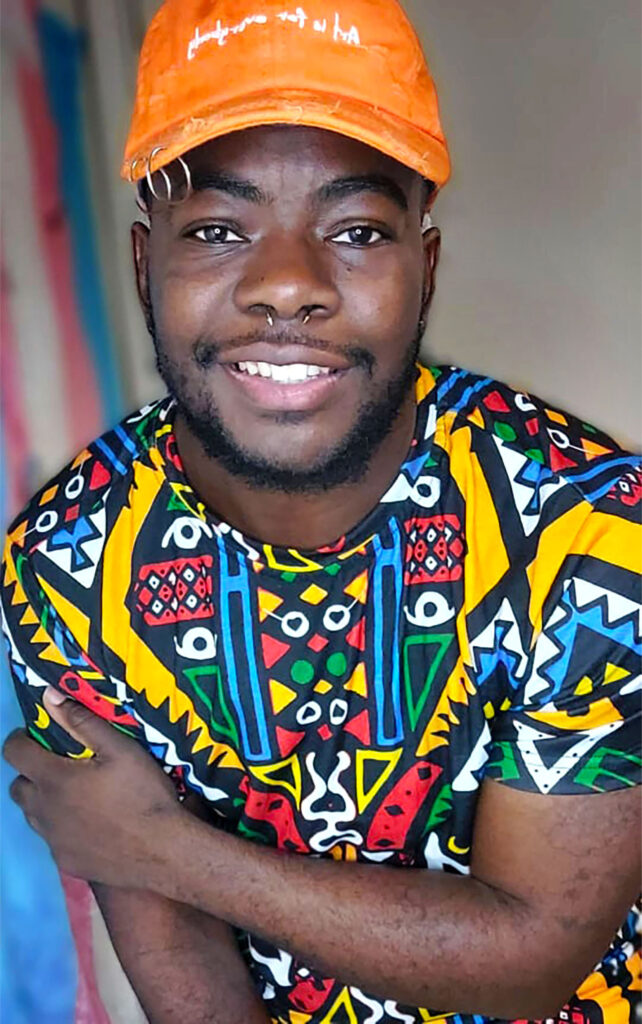
Malachi Allen shares his experience as a pregnant transmasc person
by Shelda Edwards
Like many others in love, Malachi Allen wanted to grow his family with his partner “the old-fashioned way”—and they did, just not in the way you might expect. Instead of a straight, cisgender approach to family, Malachi’s partner and two children show us families can look many different ways.
When you meet Malachi today, whether on his massage table working his magic or performing as DéMonté Knight on a drag stage, you’d never guess he had a baby just six months ago. Malachi proudly identifies as the “carrying” parent in his T4T (trans-for-trans) relationship, fondly calling himself a Seahorse Dad. As he explains, much like the seahorse males in nature, “a Seahorse Dad is someone like me [a transmasc-presenting person] who carries their child.”
Malachi coined the term “The Human Male Seahorse” on his YouTube channel, Malachi’s Journey, in 2020, a platform originally created to document his gender transition. Today, his videos follow the lives of his two beautiful children: Makell (5) and Tianna-Rae (born April 30).
“My body, my choice” doesn’t always seem to apply to transmasculine people seeking prenatal care. The reproductive healthcare system is designed with cisgender women in mind, which often leaves gender non-conforming patients struggling to receive the gentle care that cis women typically get during pregnancy. This stigma surrounding male pregnancies is part of why Malachi felt so passionate about sharing his journey online. He wanted to show trans masculine and non-binary folks that if they’re committed to dedicating nine months to building their legacy, it’s possible—with the right support.
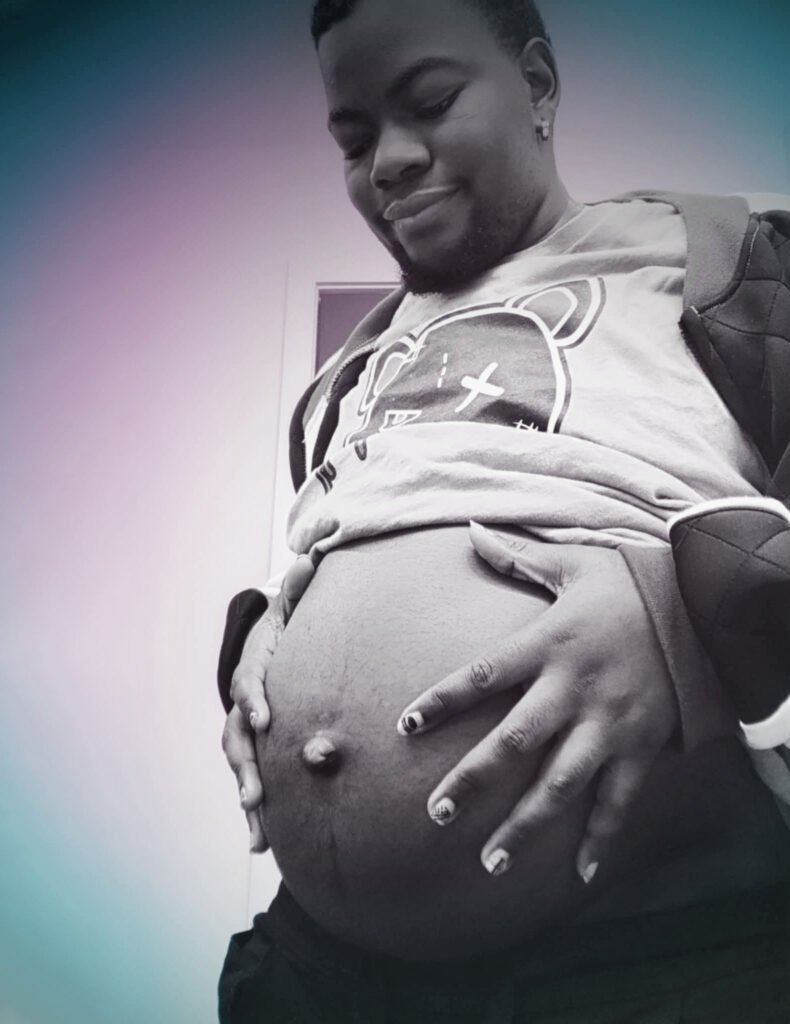
Being one of seven children, Malachi always knew he wanted a family, but he never realized it was an option for him until after transitioning. Becoming more comfortable with his gender and sexuality shifted his thinking. He and his partner, Tavianna Rose, a transgender woman, knew they would need to take specific steps before pregnancy could happen. For example, there’s a limited window for having children while on hormones, so he encourages others not to wait too long if this is something they want to pursue.
After experiencing a lack of support during his first pregnancy with Makell, Malachi understood the importance of building a solid foundation with Tavianna, both emotionally and mentally, to ensure a positive experience for the second pregnancy. He also prepared himself to handle the body dysphoria that comes with going off hormones. It took about a year for both he and Tavianna to regulate their bodies before they could begin trying. Once that initial hurdle was cleared, everything fell into place.
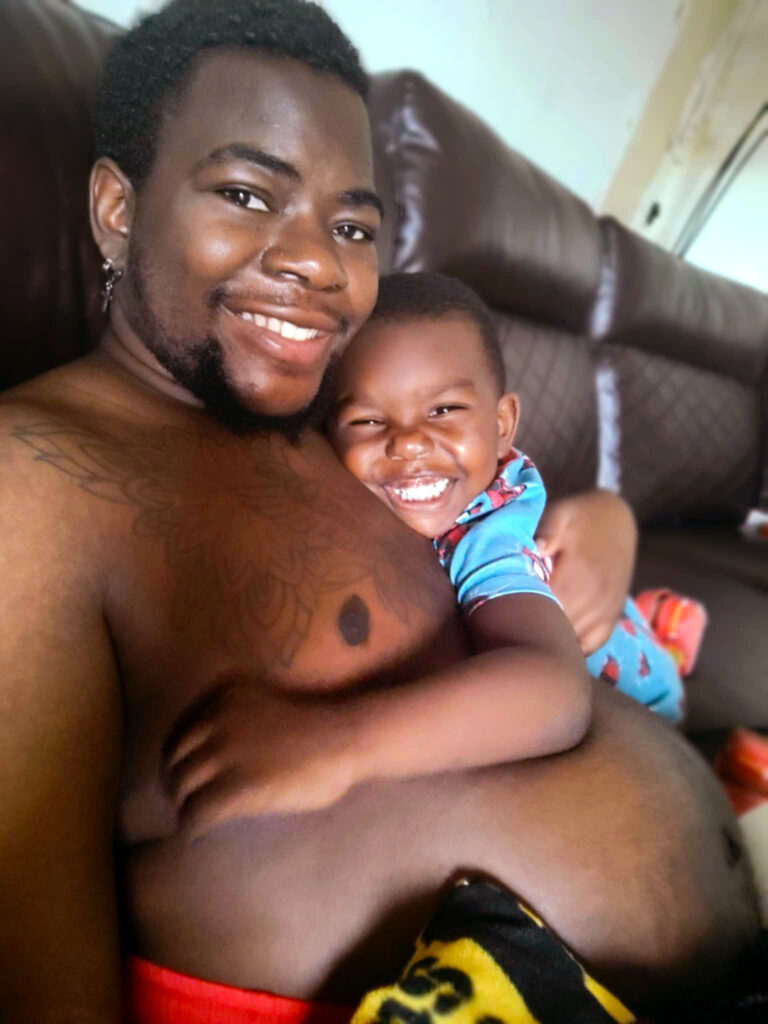
Fortunately, during his second pregnancy with Tianna-Rae, Malachi was able to continue seeing his regular physician in Little Rock, AR, once he began showing. His clinic even introduced pronoun stickers to avoid confusion and awkward conversations, which had been an issue during his first pregnancy. However, the biggest challenge this time wasn’t the pregnancy itself but what came after. For his son, Malachi was able to list “Parent 1” and “Parent 2” on the birth certificate instead of the default “mother” and “father.” But this was not the case for his second child. Malachi later discovered that the hospital for his second pregnancy hadn’t submitted his paperwork to accommodate his family structure.
This lack of support wasn’t limited to the healthcare system. Even within his community, Malachi noticed differences in how people treated him compared to how they treated cisgender women during pregnancy. No one offered to rub his feet. Outside of his immediate family, no one accompanied him to doctor’s visits or offered to carry heavy boxes for him. Malachi asks for the same kindness and support to be extended to pregnant transmasc individuals as it is to cis women.
The most important advice he offers to other transmasc or non-binary individuals considering pregnancy is to advocate for themselves. If you’re not confident in speaking up, have someone else do it for you. If you want a C-section because the idea of natural birth feels too dysphoric, ask for it. And for healthcare providers, don’t make assumptions about what your pregnant transmasc patients want—listen to them. Be open-minded to the possibility of a man wanting to go through pregnancy and have his own children.
Malachi’s passion for family has only grown. He is now working with LGBTQ-inclusive group Game Changing Men to create an annual wellness and reproductive health event called Pride & Joy: Family Day. The goal is to bring together families, practitioners, daycares, and others to show queer families and their children that they are not alone and that the community is constantly growing.
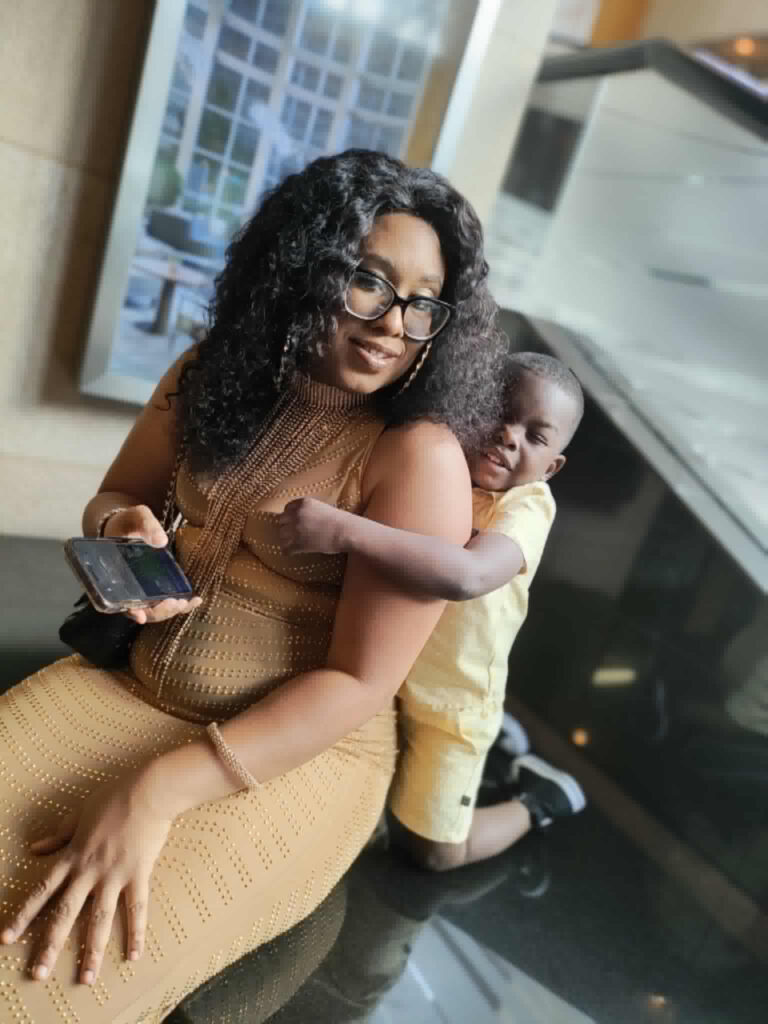
Pregnancy is a hot topic in today’s political climate, and the personal is political. Malachi’s story is about a family building itself despite a system that often works against them. Malachi Allen, Tavianna Rose, Makell, and Tianna-Rae simply want people to know that their family is just like any other. Moving forward, Malachi and Tavianna are hoping to find their “forever home,” and Malachi hopes to fill it with love, perhaps even with one more child, if he has a say. Above all, he is committed to being someone his children—and the broader community—can look up to.
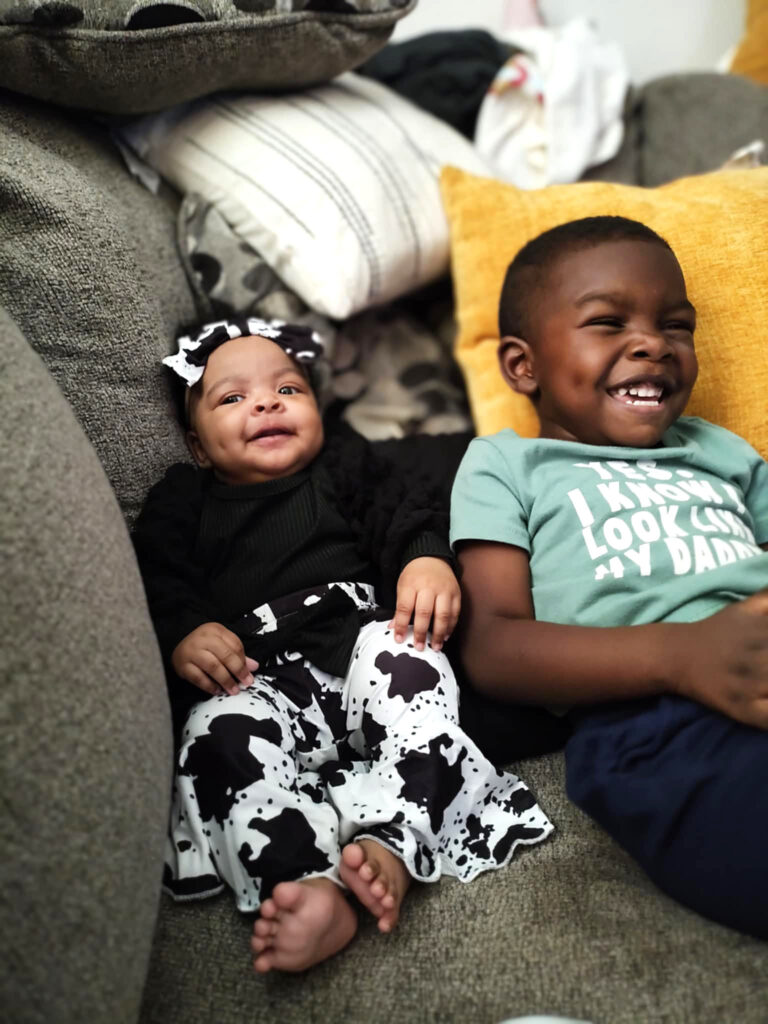
3 Ways You Can Support Your Seahorse Dad Friends:
1. Mental health is challenging even on a good day—lend an ear and listen.
2. Show up! Attend doctor’s visits, go shopping for supplies, or offer any help you can.
3. Ask your healthcare providers if they have information on trans pregnancies.
photos courtesy Malachia Allen

Billboard. Artwork by Kah Yangni/ courtesy Forward Together



